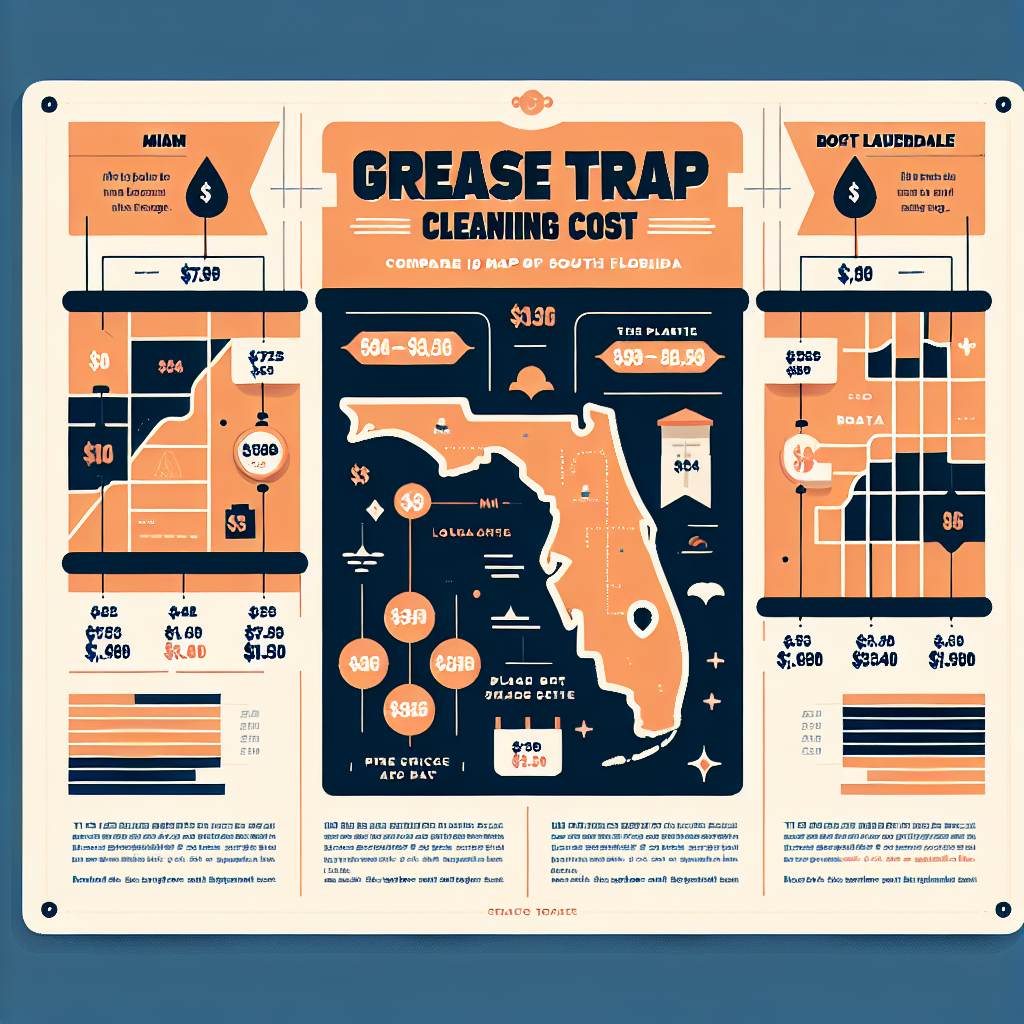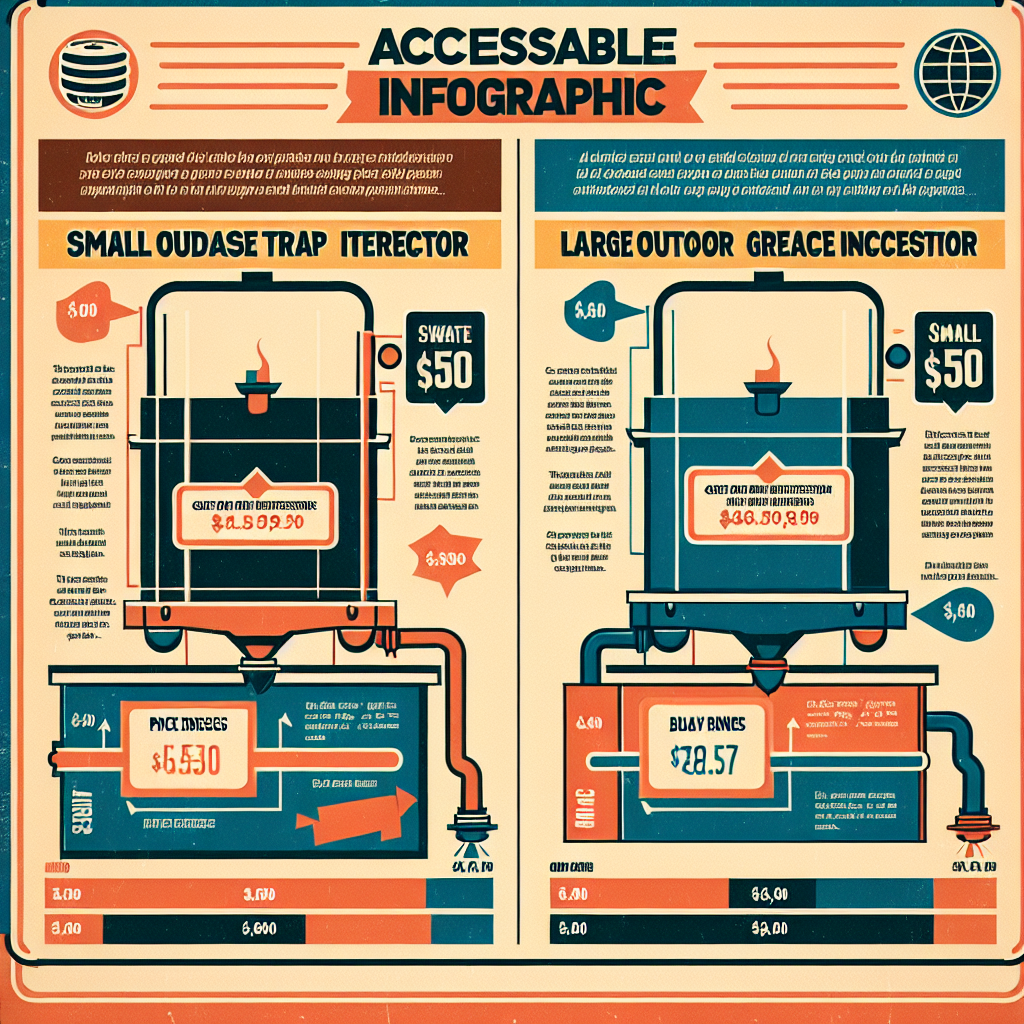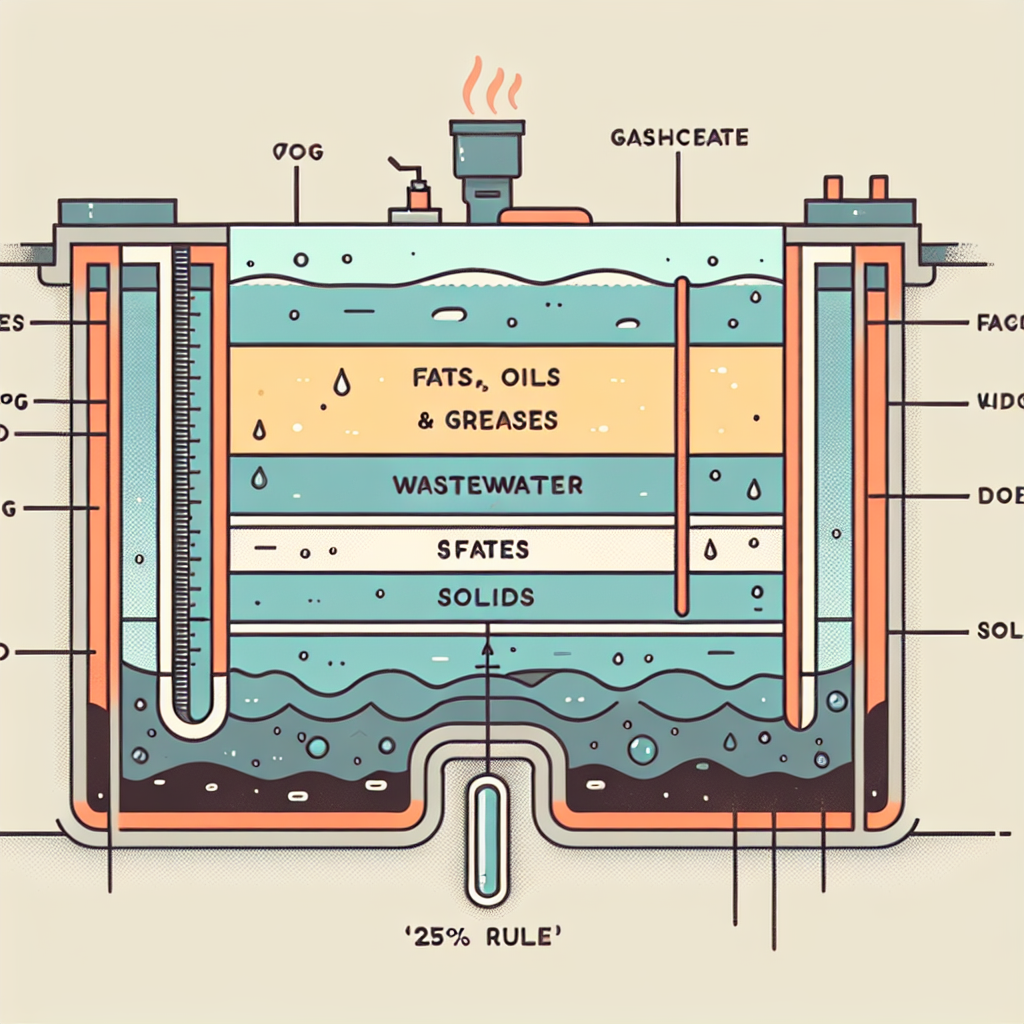How Much Should You Budget for Grease Trap Maintenance?
Complete guide to how much should you budget for grease trap maintenance? for South Florida restaurants.
We Handle Everything For You
We handle all the sourcing, negotiations, and logistics to find you the best grease trap service provider at the cheapest cost in your area.
How Much Should You Budget for Grease Trap Maintenance?
How Much Should You Budget for Grease Trap Maintenance?
Understanding how to effectively budget for grease trap maintenance is crucial for restaurant owners in South Florida. Proper budgeting ensures compliance with local regulations and prevents costly emergencies. This guide provides detailed insights into budgeting for grease trap maintenance, with a focus on cost-transparency for Miami, Fort Lauderdale, and Boca Raton.
Monthly Budget Recommendations by Restaurant Size
Small Restaurants (Under 50 Seats)
Medium Restaurants (50-150 Seats)
Large Restaurants (150+ Seats)
High-Volume Establishments
Annual Cost Projections
Monthly Maintenance Costs
Regular monthly maintenance is essential to prevent grease buildup and ensure compliance. Budgeting for these costs helps avoid emergency expenses.
Quarterly Deep Cleaning
Deep cleaning every quarter ensures that grease traps are functioning optimally and reduces the risk of blockages.
Annual System Evaluation
An annual evaluation by a professional can identify potential issues before they become costly problems.
Emergency Service Reserves
Setting aside an emergency fund for unexpected grease trap issues can save significant costs in the long run.
Cost Factors That Affect Your Budget
Trap Size and Capacity
Larger traps require more maintenance, impacting overall costs.
Kitchen Volume and Menu Type
High grease output from certain menu types can increase maintenance frequency and costs.
Local Regulations and Requirements
Compliance with local regulations in Miami, Fort Lauderdale, and Boca Raton can affect maintenance schedules and costs.
Service Provider Selection
Choosing a reliable service provider can impact costs and service quality.
Budget Planning Strategies
Setting Aside Monthly Reserves
Allocate a portion of your monthly budget for regular maintenance and potential emergencies.
Planning for Seasonal Variations
Consider seasonal fluctuations in business volume that may affect grease trap usage.
Emergency Fund Recommendations
Maintain a reserve fund to cover unexpected maintenance or repair costs.
Long-Term Capital Planning
Invest in high-quality grease trap systems to reduce long-term maintenance costs.
Cost-Saving Strategies
Regular Maintenance Benefits
Consistent maintenance prevents costly repairs and ensures compliance.
Service Agreement Advantages
Service agreements can offer cost savings and ensure regular maintenance.
Staff Training Cost Savings
Training staff on proper grease disposal can reduce maintenance frequency.
Preventative Maintenance ROI
Investing in preventative maintenance can yield a high return by avoiding emergency costs.
Budget vs Actual Cost Tracking
Monthly Expense Monitoring
Regularly track expenses to ensure they align with your budget.
Cost Variance Analysis
Analyze any discrepancies between budgeted and actual costs to adjust future budgets.
Budget Adjustment Strategies
Adapt your budget based on past expenses and anticipated changes.
Financial Planning Tools
Utilize tools and software to streamline budget tracking and adjustments.
FAQs
How much does grease trap maintenance cost?
Grease trap maintenance costs vary based on restaurant size and location, ranging from $150 to $1,000 per month.
What factors affect grease trap maintenance costs?
Costs are influenced by trap size, kitchen volume, menu type, and local regulations.
How often should grease traps be cleaned?
Grease traps should be cleaned monthly, with deep cleanings quarterly.
What are the benefits of a service agreement?
Service agreements can reduce costs, ensure regular maintenance, and provide peace of mind.
How can I save on grease trap maintenance costs?
Regular maintenance, staff training, and preventative measures can significantly reduce costs.
Why is budgeting for grease trap maintenance important?
Proper budgeting ensures compliance, prevents costly emergencies, and maintains efficient kitchen operations.
Conclusion
Budgeting for grease trap maintenance is a critical aspect of restaurant management in South Florida. By understanding the costs involved and implementing strategic planning, restaurant owners can ensure compliance, prevent emergencies, and optimize their maintenance budgets. For more detailed guidance, consider consulting local regulations or professional service providers.
Call to Action
For expert grease trap maintenance services in Miami, Fort Lauderdale, and Boca Raton, contact our team today to ensure your restaurant remains compliant and efficient. Visit [Florida Department of Environmental Protection](https://floridadep.gov/) for more information on local regulations.
Related Grease Trap Resources



Need Professional Help?
Get expert grease trap services with transparent pricing and same-day availability.
Get Free Quote